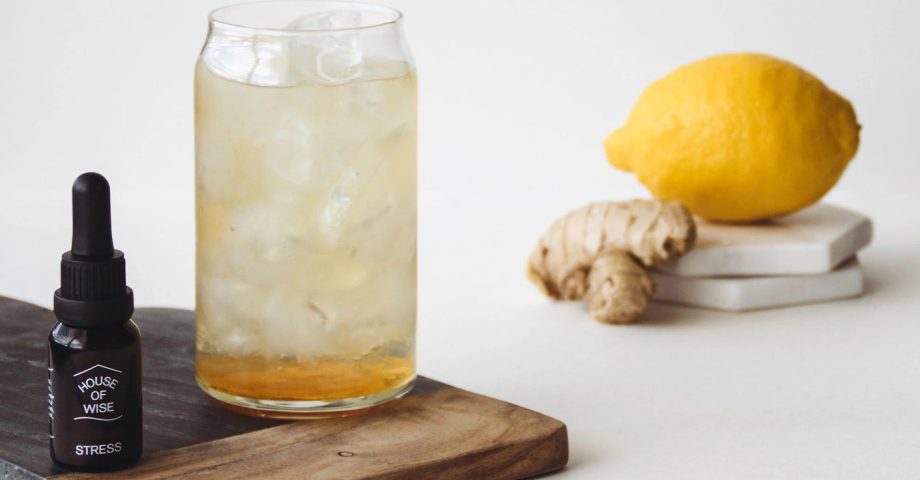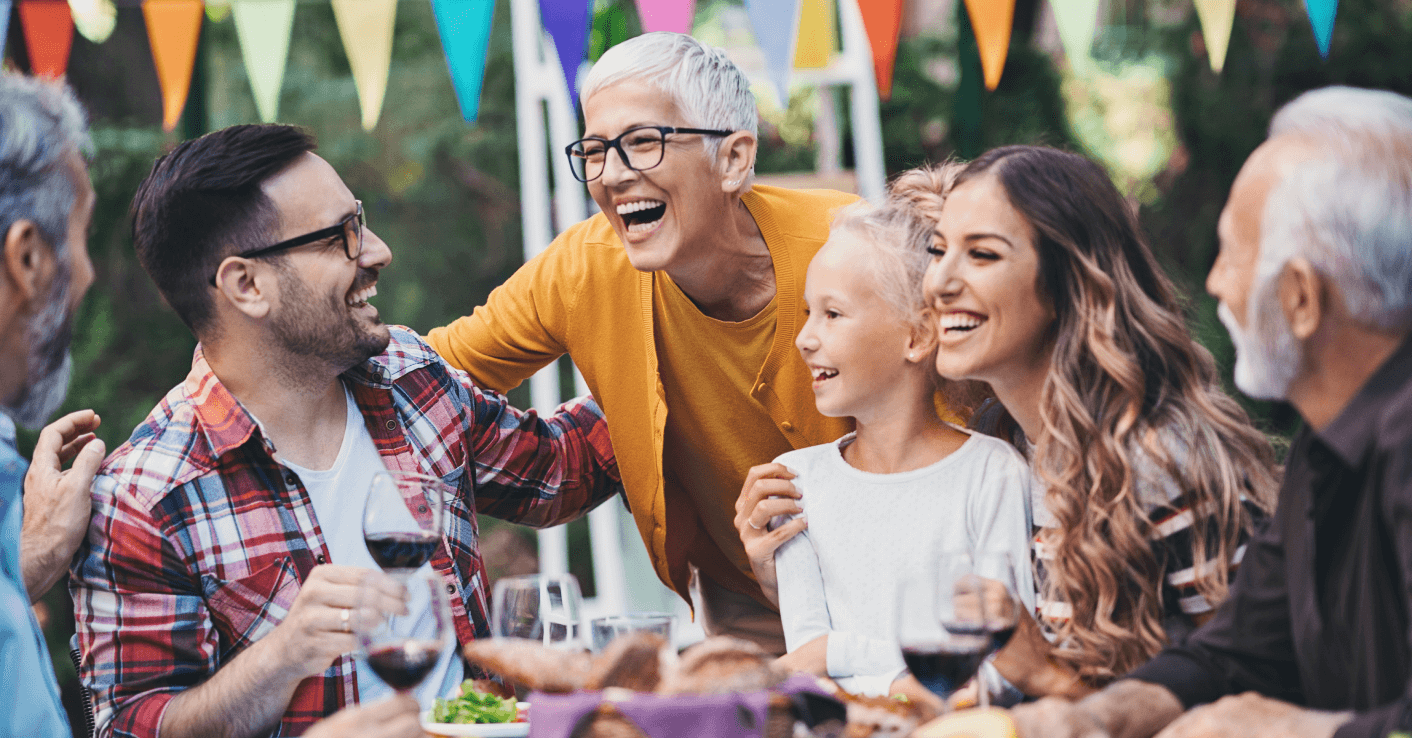Last Updated on May 19, 2023
The following is a guest post by House of Wise, a luxury CBD and wellness brand that empowers women to take control of their sleep, sex, stress, strength, and wealth. Visit House of Wise to learn more about their line of CBD products.
If you’re looking to cut back on drinking or simply build healthier drinking habits, it’s important to understand your triggers — that is, why and when you are tempted to drink or to overindulge.
Drinking triggers can be in internal (emotional) and external (situational), but learning how to manage them can help you manage your alcohol use. In addition, there is mounting research that CBD — aka cannabidiol — can be a useful tool for practicing mindful drinking.
What Is Mindful Drinking?
Thinking while drinking is the key to practicing mindful drinking, which means paying close attention to how much alcohol you consume, the motivations behind your alcohol consumption, and the consequences. If you don’t understand what triggers you to drink, you could end up drinking more than you intend to.
“One of the best things someone can do to be more mindful about their drinking is to set a personal limit for drinking sessions and to keep a log of exactly how many drinks they have consumed over the course of a day or evening,” said licensed mental health counselor Joel Schmidt of Float On Counseling in an email interview. “The key here is to be honest with yourself about how much you’re actually drinking.”
Tens of thousands of people are using Sunnyside to track their alcohol intake, set goals, and reduce their consumption and drink more mindfully. A key part of mindful drinking is understanding your drinking triggers and how to proactively manage them. In this article, we explain some common triggers (both internal and external) and how using CBD can help you manage those triggers.
Curious about mindful drinking? Start a 15-day free trial of Sunnyside today.
What Is CBD?
CBD stands for cannabidiol, which is an active ingredient extracted from the cannabis plant and one of more than 100 naturally occurring cannabinoids. Unlike its well-known cousin THC (tetrahydrocannabinol), CBD is not psychoactive, meaning it does not get you high. According to the World Health Organization, “CBD exhibits no effects indicative of any abuse or dependence potential.”
Your body actually produces its own cannabinoids, whether you consume cannabis products or not. CBD works by interacting with your body’s endocannabinoid system, or ECS. While experts are still studying the functions of the ECS, this biological system is known to play a role in homeostasis, regulating your sleep, stress, mood, and memory.
The research around CBD is nascent but promising. Based on animal studies, human research, and self-reported data, CBD may also help with a wide variety of health issues, including stress, insomnia, and chronic pain. As a result, CBD may also help you manage the internal and external triggers that cause you to drink. There is also strong scientific evidence that CBD can treat childhood epilepsy syndromes; in 2020, the FDA approved Epidiolex, a CBD oral solution for treating seizures associated with two rare and severe forms of epilepsy
You can find many forms of CBD on the market, including tinctures (drops) and edibles like gummies. Different methods and dosages may produce slightly different effects. As with any supplement, make sure you get your CBD from a trusted source and talk to your doctor to avoid any potential drug interactions. For more information, check out this guide to CBD dosing.
Internal Triggers: Stress and Boredom
Internal triggers are emotions that occur within your brain (like stress, nervousness, sadness, and boredom) that may cause you to drink or drink more than you’d like. These triggers may or may not have anything to do with what’s going on around you.
“Internal triggers include a variety of thoughts, feelings, emotions, and physical sensations,” said psychologist Dr. Michael Rodriguez of Brooklyn Minds. “Internal triggers are cues that come from inside you and are often difficult to manage.”
Dr. Rodriguez explained that any type of strong emotion can be a trigger, be it positive or negative. “Anxiety and stress are common triggers for drinking,” he said in an email interview. “Sadness, anger, jealousy, and loneliness are also common. People often forget to account for positive feelings, though: celebration, joy, confidence, and excitement can also all be triggers to drink.”
Schmidt, who specializes in harm-reduction and alcohol moderation, said that in addition to stress, boredom is a very common trigger. If you’re the type of person who easily feels restless, you may find yourself reaching for alcohol as a quick fix.
“Even more neutral emotions, such as boredom, can be triggers to drink in excess,” said Schmidt. “People with personality traits more inclined to need high levels of stimulation drink when they aren’t engaged in things that make them feel ‘entertained.'”
External Triggers: Social Situations and Social Isolation
External triggers are exactly what they sound like: factors that exist outside your body and brain that can intensify your desire to drink. External triggers include everything from financial worries and work responsibilities to stressful or uncomfortable situations to being around people who consume alcohol or seeing someone drinking on TV.
“Social situations can be triggers to drink, especially for people who are more socially anxious,” said mental health counselor Schmidt. “Drinking tends to loosen people up and make them feel more comfortable interacting with groups, especially in larger groups or when the people are new and unfamiliar.”
Even if you don’t suffer from social anxiety, being around other people who are drinking in excess could be enough to trigger you if you are trying to drink mindfully. Schmidt warns people to be extra vigilant during social situations: “Certain times of year can be triggers for overindulging. During the holidays, we often see people give themselves ‘a pass’ to drink more than they usually would. Other times people might find themselves drinking more during colder months when they are more likely to be cooped up indoors with less options for healthy outdoor activities.”
Paradoxically, just as socializing can cause people to drink or overdrink, social isolation or loneliness can have the same effect — something many people learned the hard way during this pandemic.
How CBD Can Help Manage Triggers
While it’s difficult (and unhealthy) to ignore our emotions, if you want to cut down on your drinking or build healthier habits, it’s important to understand your triggers. To manage both internal and external triggers, experts suggest finding new coping techniques that don’t involve drinking.
“It has been programmed into us that alcohol is one of the most viable options when needing an emotional release,” said Maggie Jenson, who is a behavior change coach with Magnify Progressive Wellness. “Yet science shows us that (alcohol) actually increases anxiety and depressive tendencies.”
That’s right: the alcohol you are consuming to manage your stress may actually be making it worse. Jenson suggests that individuals should try different alternatives for managing their triggers. For instance, exercise, journaling, and meditating can help regulate your mood and provide a release that doesn’t involve alcohol.
Another tool for managing triggers is CBD. Unlike alcohol, CBD isn’t known to have any abuse or dependence potential, making it a safer, healthier way to manage your stress. According to Harvard Health, animal models suggest that CBD “may also help lessen cravings for alcohol, cannabis, opiates, and stimulants.” Research also suggests that CBD may lower your cortisol, which is your body’s stress hormone.
If stress is one of your internal triggers, you might consider adding CBD to your routine — in addition to or in place of alcohol. Taking CBD could help manage your stress levels and cut down on your craving to drink. Similarly, if you tend to drink more in social situations due to social anxiety or discomfort, taking a small dose of CBD before socializing could help you manage your stress and, therefore, your alcohol intake.
Because high levels of stress can make it easier to lose focus, CBD can also help regulate restless emotions that can lead to boredom. If you tend to overindulge when you are unsupervised or home alone, establishing a CBD regimen could help you manage your stress and avoid turning to alcohol as a quick fix.
CBD isn’t a replacement for a mindful drinking practice, but it can be an additional tool in your cutback toolkit. Taking a regular dose of CBD may help you better manage internal and external triggers — such as stress and social anxiety — and bolster your mindful drinking practice.



